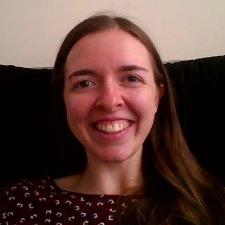
Maurice S. answered • 01/16/23
Besides English grammar, I know how and why it got that way.
The rule in English is that we generally start sentences with a subject, followed by a verb, and we fit everything else in as appropriate.
1. shall start, immediately, we, program, the
We is the best word for a subject, and shall start is a verb, and start can be a transitive verb, so it may have a direct object right after it,so:
We shall start the program immediately.
2. during, strong, a, the, night, typhoon, came
Either night or typhoon might be a subject, and came is a verb, so we can try two versions, but strong is an adjective which can't describe a night, so:
A strong typhoon came during the night. Or:
A night came during the strong typhoon.
Looking at these two options, the first one makes more sense.
3. already, have finished, the, their, students, projects
Knowing something about students and projects, I would say that students is the more likely subject, and have finished is a verb, so projects is probably the direct object. And their is a pronoun, so it needs to be introduced by a noun so we know who it's referring to, so:
The students have finished their projects already.
4. last night, owl, an, we, saw
We is a subject pronoun, and saw is a transitive verb, so it needs a direct object, so:
We saw an owl last night.
5. doctor, now, will see, the, you
Either doctor or you could be a subject, and will see could be a transitive verb, so it could have a direct object, so we can try two options:
The doctor will see you now. Or:
You will see the doctor now.
Having once visited a doctor's office, I think the first option is more likely.
6. friend, my, visit, yesterday, came, for, a
Friend and visit could both be subjects, but came is a verb, and friends come but visits don't, so:
My friend came for a visit yesterday.
7. tomorrow, will come, to, see, Jack, us
Jack is the only noun that can do things, so it is probably the subject, and will come is a verb, so:
Jack will come to see us tomorrow.
8. folk, the, will perform, tonight, dancers
Folk or dancers are both nouns, but dancers is the easier subject, and will perform is a verb, so we could try two options:
The dancers will perform folk tonight. Or:
The folk-dancers will perform tonight.
Since I don't know what kind of performance folk would be, the second option must be correct.
9. school, studied, in, she, our, last year
She is a subject pronoun, so she must be the subject, and studied is the verb, so:
She studied in our school last year.
10. I, later, shall see, you, today
I is a subject pronoun, so I must be the subject, and shall see is the verb, so:
I shall see you later today.




